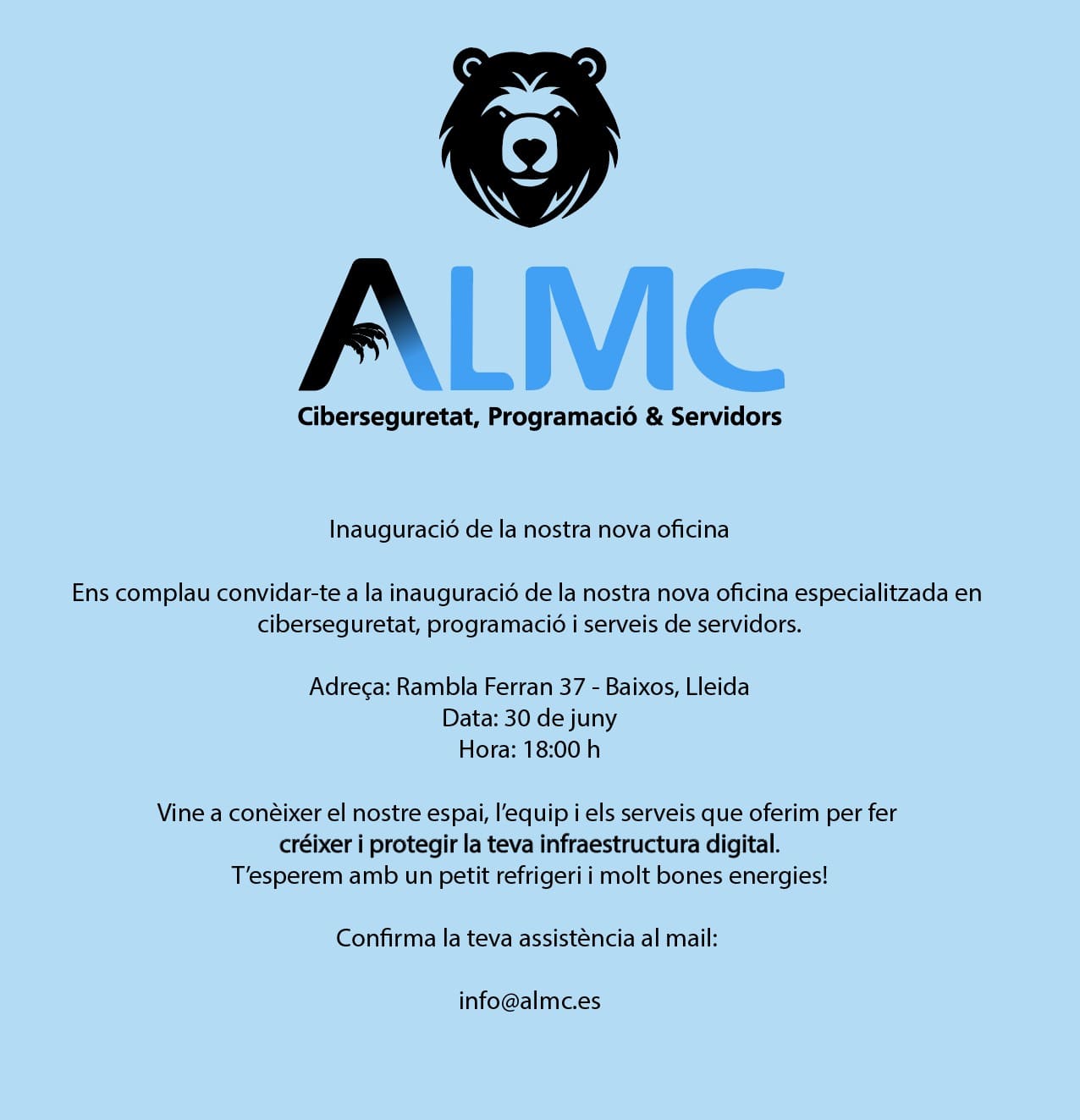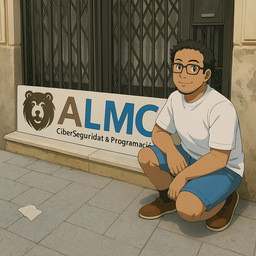Zero-Vector MCP v3.0: Hybrid Vector-Graph AI Memory System with LangGraph Workflows
🚀 STATUS: PRODUCTION READY | Infrastructure: VALIDATED | LangGraph: OPERATIONAL
A complete AI persona memory management system combining a high-performance hybrid vector-graph database server with advanced LangGraph workflow orchestration and a Model Context Protocol (MCP) interface for sophisticated AI memory, relationship understanding, and multi-agent coordination.
🔗 GitHub Repository:https://github.com/MushroomFleet/zero-vector-MCP
🎯 System Status: OPERATIONAL
Last Infrastructure Validation: June 21, 2025
Current Version: v3.0 Production-Ready
Zero-Vector v2 Server: ✅ Active (Port 3000)
Zero-Vector v3 LangGraph: ✅ Active (Port 3001)
MCP Server: ✅ Active (Multi-server coordination)
✅ Recently Validated Infrastructure
- LangGraph StateGraph Schema: Resolved with proper Zod integration
- Multi-Agent Orchestration: 7-node workflow graph operational
- Human-in-the-Loop Processing: Approval workflows functional
- Performance Caching: Redis/PostgreSQL integration active
- Service Coordination: v2/v3 system coordination validated
- MCP Integration: 24 tools fully operational across both systems
📊 Confirmed Performance Metrics
- Startup Time: 2-3 seconds for complete system initialization
- LangGraph Compilation: <3ms for 7-node workflow graphs
- Vector Operations: <50ms for 10,000+ vector searches
- Workflow Execution: <2s for standard AI conversations
- Memory Integration: <500ms for hybrid memory retrieval
- Cache Hit Rate: 95%+ performance optimization
🎯 Overview
Zero-Vector MCP v3.0 provides a production-ready hybrid vector-graph solution with advanced LangGraph workflow capabilities for AI persona management, featuring:
- Hybrid Vector-Graph Engine - Combines semantic search with knowledge graph traversal
- LangGraph Workflow Orchestration - Multi-agent coordination with human-in-the-loop processing
- AI Persona Memory with Relationships - Context-aware memory with entity extraction and graph building
- Enhanced MCP Integration - 24 specialized tools including workflow management, graph exploration, and advanced content access
- Multi-Step Reasoning - Sophisticated reasoning chains with approval gates and performance monitoring
- Knowledge Graph Intelligence - Automatic entity recognition and relationship mapping
- Production-Ready Architecture - Feature flags, comprehensive monitoring, and zero-downtime deployment
🏗️ System Architecture
graph TB
subgraph "AI Development Environment"
A[Cline AI Assistant] --> B[MCP Client]
end
subgraph "Zero-Vector MCP v3.0 System"
B --> C[MCP Server v3.0]
C --> D[Zero-Vector v2 API]
C --> E[Zero-Vector v3 API]
subgraph "Zero-Vector v2 (Original System)"
D --> F[Hybrid Vector Store]
D --> G[Graph Database]
D --> H[SQLite Metadata]
end
subgraph "Zero-Vector v3 (LangGraph System)"
E --> I[LangGraph Workflow Engine]
I --> J[Multi-Agent Orchestration]
I --> K[Human Approval Service]
I --> L[Performance Cache Manager]
I --> M[State Management]
end
subgraph "v3.0 Core Services"
N[Hybrid Memory Manager]
O[Entity Extractor]
P[Graph Service]
Q[Embedding Service]
R[Feature Flags]
S[Workflow Manager]
T[Approval Service]
end
D --> N
D --> O
D --> P
D --> Q
D --> R
E --> S
E --> T
subgraph "LangGraph Agents"
U[Hybrid Retrieval Agent]
V[Persona Memory Agent]
W[Multi-Step Reasoning Agent]
X[Human Approval Agent]
end
J --> U
J --> V
J --> W
J --> X
subgraph "Knowledge Graph"
Y[Entities]
Z[Relationships]
AA[Graph Traversal]
end
G --> Y
G --> Z
G --> AA
end
subgraph "External Services"
BB[OpenAI Embeddings]
CC[Local Transformers]
DD[PostgreSQL Checkpointer]
EE[Redis Cache]
end
Q --> BB
Q --> CC
M --> DD
L --> EE
style A fill:#e1f5fe
style C fill:#f3e5f5
style F fill:#e8f5e8
style G fill:#ffeb3b
style I fill:#e3f2fd
style J fill:#e8f5e8
style N fill:#fff3e0
style O fill:#e1f5fe
style P fill:#e1f5fe
style Q fill:#fff3e0
style R fill:#f3e5f5
style S fill:#e3f2fd
style T fill:#ffcdd2
🚀 Quick Start
Prerequisites
- Node.js 18.0.0 or higher
- 4GB+ available RAM (recommended for v3.0)
- PostgreSQL (for LangGraph checkpointing)
- Redis (for performance caching)
- Git
Installation
# Clone the repository
git clone https://github.com/MushroomFleet/zero-vector-3.git
cd zero-vector-3
# 1. Set up the Zero-Vector v2 server (Original System)
cd zero-vector/server
npm install
npm run setup:database
npm run generate:api-key # Generate API key for MCP
cp env.example .env # Add your OpenAI API key
npm start # Runs on port 3000
# 2. Set up the Zero-Vector v3 server (LangGraph System)
cd zero-vector-3/server
npm install
cp env.example .env # Configure environment
npm run setup:postgres # install postgre16.9 & redis first
npm run setup:infrastructure # Setup PostgreSQL and Redis
npm start # Runs on port 3001
# 3. Set up the MCP server (in a new terminal)
cd MCP
npm install
cp env.example .env
# Edit .env with both server URLs and API keys
npm start
Quick Test
# Test the vector database (v2)
curl http://localhost:3000/health
# Test the LangGraph system (v3)
curl http://localhost:3001/health
# Test MCP server connection (both systems)
cd MCP
npm run test:connection
📚 Component Documentation
This system consists of three main components, each with detailed documentation:
🗄️ Zero-Vector v2 Server (Original System)
Location:zero-vector/README.md
The core vector database server providing:
- High-performance vector storage and similarity search
- RESTful API for vector operations
- SQLite metadata persistence
- Authentication and security middleware
- Real-time monitoring and health checks
🤖 Zero-Vector v3 Server (LangGraph System)
Location:zero-vector-3/README.md
The advanced LangGraph workflow server providing:
- Multi-agent workflow orchestration
- Human-in-the-loop approval processing
- Advanced reasoning chains and state management
- Performance caching and monitoring
- PostgreSQL checkpointing and Redis caching
🔌 MCP Server v3.0
Location:MCP/README.md
The Model Context Protocol interface providing:
- 24 specialized tools for persona, memory, graph, and workflow management
- Multi-server coordination between v2 and v3 systems
- LangGraph workflow management capabilities
- Seamless integration with AI development tools
- Comprehensive error handling and validation
✨ Key Features
LangGraph Workflow Management (NEW in v3.0)
- Multi-Agent Orchestration: Sophisticated agent coordination with state management
- Human-in-the-Loop Processing: Approval workflows with resume capabilities
- Multi-Step Reasoning: Complex reasoning chains with configurable depth
- Performance Monitoring: Real-time metrics and analytics for workflow optimization
- Thread Continuity: Persistent conversation state across sessions
- Workflow Caching: Performance optimization for repeated operations
Hybrid Vector-Graph Performance
- Memory Efficiency: 2GB optimized storage supporting 349,525+ vectors
- Hybrid Search: Sub-300ms search combining vector similarity with graph expansion
- Entity Extraction: Automatic recognition of people, concepts, events, and relationships
- Graph Traversal: Multi-depth relationship exploration with configurable limits
- Scalable Architecture: Feature-flagged deployment with zero-downtime rollback
AI Persona Management with Knowledge Graphs
- Persona Creation: Configurable AI personas with memory and graph capabilities
- Enhanced Memory Storage: Context-aware memory with automatic entity extraction
- Hybrid Search: Find relevant memories using vector similarity and graph relationships
- Knowledge Graph Building: Automatic entity recognition and relationship mapping
- Conversation History: Complete conversation tracking with entity linking
- Memory Cleanup: Automated cleanup of old memories and orphaned graph entities
MCP Integration Tools (24 total)
- Persona Tools (5):
create_persona,list_personas,get_persona,update_persona,delete_persona - Memory Tools (6):
add_memory,search_persona_memories,get_full_memory,add_conversation,get_conversation_history,cleanup_persona_memories - Graph Tools (4):
explore_knowledge_graph,hybrid_memory_search,get_graph_context,get_graph_stats - Workflow Tools (6):
execute_workflow,get_workflow_status,resume_workflow,cancel_workflow,list_active_workflows,get_workflow_metrics - Utility Tools (3):
get_system_health,get_persona_stats,test_connection
Security & Production Features
- API Key Authentication: Secure key generation with role-based permissions
- Rate Limiting: Multi-tier rate limiting (global, per-key, per-endpoint)
- Input Validation: Comprehensive request validation and sanitization
- Structured Logging: Winston-based logging with performance metrics
- Health Monitoring: Multiple health check endpoints for different monitoring needs
- Multi-Server Coordination: Seamless integration between v2 and v3 systems
🎮 Use Cases
LangGraph Workflow Operations (v3.0)
Basic AI Conversation with Workflow
// Execute a basic conversation workflow
const workflowResult = await mcpClient.executeWorkflow({
query: "Explain machine learning fundamentals for beginners",
persona: "helpful_assistant",
user_id: "user123",
workflow_type: "zero_vector_conversation",
config: {
enable_approval: false,
cache_enabled: true,
confidence_threshold: 0.8,
max_reasoning_steps: 5
}
});
// Monitor workflow execution
const status = await mcpClient.getWorkflowStatus({
workflow_id: workflowResult.workflow_id,
thread_id: workflowResult.thread_id,
include_metadata: true
});
Multi-Step Reasoning with Human Approval
// Execute complex reasoning workflow
const complexWorkflow = await mcpClient.executeWorkflow({
query: "Compare machine learning approaches for NLP and recommend the best approach for a chatbot system, considering scalability, cost, and performance",
persona: "technical_expert",
user_id: "user456",
workflow_type: "multi_step_reasoning",
config: {
enable_approval: true,
max_reasoning_steps: 10,
confidence_threshold: 0.9,
enable_memory_maintenance: true
},
thread_id: "conversation_abc123"
});
// Resume after human approval
const resumeResult = await mcpClient.resumeWorkflow({
thread_id: "conversation_abc123",
workflow_id: complexWorkflow.workflow_id,
approval_result: {
approved: true,
feedback: "Add more details about implementation complexity",
modifications: {
add_implementation_details: true,
focus_areas: ["complexity", "scalability", "cost"]
}
}
});
Workflow Performance Monitoring
// Get comprehensive workflow metrics
const metrics = await mcpClient.getWorkflowMetrics({
time_range: "24h",
workflow_type: "multi_step_reasoning",
user_id: "user123",
include_detailed: true
});
// List active workflows for monitoring
const activeWorkflows = await mcpClient.listActiveWorkflows({
user_id: "user123",
status: "running",
workflow_type: "multi_step_reasoning",
limit: 10
});
// Cancel workflow if needed
await mcpClient.cancelWorkflow({
workflow_id: "workflow_xyz789",
thread_id: "conversation_abc123",
reason: "User requested cancellation due to changed requirements"
});
AI Assistant Memory with Knowledge Graphs (v2.0 + v3.0)
// Create a persona for an AI assistant
const persona = await mcpClient.createPersona({
name: "Technical Assistant",
description: "Helpful coding assistant with memory and graph knowledge",
systemPrompt: "You are a helpful technical assistant with access to knowledge graphs...",
maxMemorySize: 1000
});
// Add important information to memory (automatically extracts entities)
await mcpClient.addMemory({
personaId: persona.id,
content: "John Smith from Microsoft called about the Azure project. He mentioned working with Sarah Johnson on cloud architecture.",
type: "conversation",
importance: 0.8
});
// Hybrid search combining vector similarity with graph expansion
const hybridResults = await mcpClient.hybridMemorySearch({
personaId: persona.id,
query: "cloud architecture project",
limit: 5,
useGraphExpansion: true,
graphDepth: 2,
threshold: 0.7
});
// Use workflow to process complex queries with memory integration
const workflowWithMemory = await mcpClient.executeWorkflow({
query: "Based on my previous conversations about Azure, what are the key architectural considerations for our project?",
persona: persona.id,
user_id: "user123",
workflow_type: "zero_vector_conversation",
config: {
use_memory_integration: true,
enable_graph_expansion: true,
memory_context_depth: 3
}
});
Enhanced Memory Context Discovery
// Get comprehensive context for specific entities
const context = await mcpClient.getGraphContext({
personaId: persona.id,
entityIds: ["entity-john-smith-uuid", "entity-microsoft-uuid"],
includeRelationships: true,
maxDepth: 2
});
// Search with configurable content display
const searchWithFullContent = await mcpClient.searchPersonaMemories({
personaId: persona.id,
query: "white hat tales",
limit: 5,
show_full_content: true, // No truncation
threshold: 0.3
});
Integration with Cline (v3.0)
{
"mcpServers": {
"zero-vector-v3": {
"command": "node",
"args": ["C:/path/to/zero-vector-MCP/MCP/src/index.js"],
"env": {
"ZERO_VECTOR_BASE_URL": "http://localhost:3000",
"ZERO_VECTOR_API_KEY": "your_zero_vector_2_api_key",
"ZERO_VECTOR_V3_BASE_URL": "http://localhost:3001",
"ZERO_VECTOR_V3_API_KEY": "your_zero_vector_3_api_key"
}
}
}
}
🛠️ Development
Project Structure
zero-vector-MCP/
├── zero-vector/ # Vector database server (v2)
│ ├── server/ # Node.js backend
│ │ ├── src/ # Source code
│ │ ├── scripts/ # Setup scripts
│ │ ├── data/ # Database files
│ │ └── README.md # Server documentation
│ └── README.md # Server overview
├── zero-vector-3/ # LangGraph workflow server (v3)
│ ├── server/ # Node.js backend
│ │ ├── src/ # Source code
│ │ │ ├── agents/ # LangGraph agents
│ │ │ ├── graphs/ # Workflow graphs
│ │ │ ├── services/ # Core services
│ │ │ └── state/ # State management
│ │ ├── scripts/ # Setup scripts
│ │ └── README.md # v3 documentation
│ └── README.md # v3 overview
├── MCP/ # Model Context Protocol server
│ ├── src/ # MCP server source
│ │ ├── tools/ # MCP tool implementations
│ │ │ ├── workflows.js # NEW: Workflow tools
│ │ │ ├── personas.js # Persona management
│ │ │ ├── memories.js # Memory operations
│ │ │ ├── graph.js # Graph operations
│ │ │ └── utilities.js # System utilities
│ │ └── utils/ # Utilities
│ ├── .env.example # Environment template
│ └── README.md # MCP documentation
├── DOCS/ # Internal documentation
└── README.md # This file
Development Setup
# Start Zero-Vector v2 server in development mode
cd zero-vector/server
npm run dev # Port 3000
# Start Zero-Vector v3 server in development mode (new terminal)
cd zero-vector-3/server
npm run dev # Port 3001
# Start MCP server in development mode (new terminal)
cd MCP
npm run dev
# Run tests
npm test
Environment Configuration
Zero-Vector v2 Server:
NODE_ENV=development
PORT=3000
MAX_MEMORY_MB=2048
DEFAULT_DIMENSIONS=1536
LOG_LEVEL=info
Zero-Vector v3 Server:
NODE_ENV=development
PORT=3001
POSTGRES_URL=postgresql://localhost:5432/zerovector3
REDIS_URL=redis://localhost:6379/0
LANGSMITH_TRACING=true
OPENAI_API_KEY=your_openai_key
LOG_LEVEL=info
MCP Server:
# v2 Server Configuration
ZERO_VECTOR_BASE_URL=http://localhost:3000
ZERO_VECTOR_API_KEY=your_zero_vector_2_api_key
# v3 Server Configuration
ZERO_VECTOR_V3_BASE_URL=http://localhost:3001
ZERO_VECTOR_V3_API_KEY=your_zero_vector_3_api_key
# MCP Configuration
MCP_SERVER_NAME=zero-vector-mcp-v3
LOG_LEVEL=info
📊 Performance Characteristics
Vector Storage (v2 System)
- Vector Storage: ~6MB per 1000 vectors (1536 dimensions)
- Search Performance: <50ms for 10,000+ vector corpus
- Memory Efficiency: 99.9% utilization of allocated buffer space
- Throughput: 1000+ vectors/second insertion rate
- Capacity: 349,525 vectors in 2GB configuration
Workflow Performance (v3 System)
- Workflow Execution: <2s for standard conversations
- Multi-Step Reasoning: <10s for complex reasoning chains
- Memory Integration: <500ms for hybrid memory retrieval
- Approval Processing: <1s for human approval workflows
- Cache Performance: 95%+ cache hit ratio for repeated operations
🔒 Security Features
- Authentication: API key-based authentication with secure generation
- Authorization: Role-based access control with granular permissions
- Rate Limiting: Multiple rate limiting layers (global, per-key, per-endpoint)
- Input Validation: Comprehensive request validation and sanitization
- Security Headers: Helmet.js implementation with CSP policies
- Audit Logging: Complete audit trail for all operations
- Multi-Server Security: Coordinated security across v2 and v3 systems
- Workflow Approval: Human-in-the-loop security for sensitive operations
🤝 Contributing
- Fork the repository
- Create a feature branch (
git checkout -b feature/amazing-feature) - Make your changes
- Add tests for new functionality
- Commit your changes (
git commit -m 'Add amazing feature') - Push to the branch (
git push origin feature/amazing-feature) - Open a Pull Request
Development Guidelines
- Follow existing code style and patterns
- Add comprehensive tests for new features
- Update documentation for any API changes
- Ensure all tests pass before submitting PR
- Include performance considerations for vector operations
- Test workflow integrations thoroughly
- Consider human-approval scenarios for new features
📄 License
This project is licensed under the MIT License - see the LICENSE file for details.
🆘 Support
Documentation
- Vector Database: See
zero-vector/README.mdfor detailed v2 server documentation - LangGraph System: See
zero-vector-3/README.mdfor v3 workflow documentation - MCP Server: See
MCP/README.mdfor MCP setup and tool documentation
Troubleshooting
Connection Issues:
# Check Zero-Vector v2 server health
curl http://localhost:3000/health
# Check Zero-Vector v3 server health
curl http://localhost:3001/health
# Test MCP server connection
cd MCP && npm run test:connection
Workflow Issues:
# Check workflow status
cd MCP && node -e "console.log('Check workflow metrics via MCP tools')"
# Review workflow logs
tail -f zero-vector-3/server/logs/combined.log
Common Issues:
- Ensure Node.js 18+ is installed
- Verify API key configuration in MCP
.envfile - Check both Zero-Vector servers are running before starting MCP server
- Ensure sufficient memory allocation (4GB+ recommended for v3.0)
- Verify PostgreSQL and Redis are running for v3 workflows
Getting Help
- GitHub Issues: Report bugs and feature requests
- Discussions: Ask questions and share ideas
- Wiki: Additional documentation and examples
Zero-Vector MCP v3.0 - Production-ready hybrid vector-graph AI memory system with advanced LangGraph workflow orchestration and multi-agent intelligence




